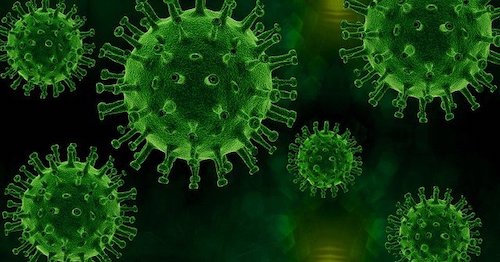
Although most patients with COVID-19 present with respiratory symptoms, gastrointestinal (GI) symptoms have also been reported in up to 25% of patients with novel corona virus disease (COVID-19). Case reports show acute pancreatitis as an initial presentation in patients with COVID-19. Research shows that islet cells of the pancreas contain ACE2 receptor proteins, and SARS-CoV2 can bind to these receptors and cause pancreatic injury.
This is a retrospective observational cohort study, published ahead of print in the journal Gastroenterology, including patients 18 years or older admitted to twelve hospitals within the Northwell Health System from March 1, 2020-June 1, 2020 during the COVID-19 pandemic in New York. Patients presented acute pancreatitis on admission if they met all three of the following criteria: 1) lipase greater than three times the upper limit of normal, 2) cross sectional imaging (computed tomography or magnetic resonance imaging) showing pancreatitis, and 3) characteristic upper abdominal pain at admission.
During the study period, 48,012 patients were hospitalized and 11,883/48,012 (24.75%) were COVID-19 positive on admission. A total of 189/48,012 met criteria for a diagnosis of pancreatitis (point prevalence 0.39%), and 32/189 (17%) were COVID-19 positive, yielding a point prevalence of 0.27% of pancreatitis among patients hospitalized with COVID-19.
Those with acute pancreatitis and COVID-19 were compared to a group of patients with acute pancreatitis but without COVID-19. Patient charts were manually reviewed not only to confirm the diagnosis of pancreatitis, but also to determine its etiology. The researchers examined primary outcomes of mortality, length of stay, need for mechanical ventilation, and development of pancreatic necrosis were compared between the two groups. Study results are as follows:
- A higher proportion of Black and Hispanics had pancreatitis in the COVID positive group compared to the COVID negative group (p=0.03).
- Among the group of patients who were COVID-19 negative, gallstone and alcohol etiologies were most common at 34% and 37% respectively, similar to that of the general population7.
- However among patients with COVID-19, these etiologies only accounted for 16% and 6% of cases respectively. Rather, idiopathic pancreatitis was the most common etiology in this group at 69% compared to 21% in patients who were COVID-19 negative (p<0.0001).
- After controlling for clinical relevant factors in an adjusted multivariate analysis (See Supplemental Methods) among patients with pancreatitis, the association of Black and Hispanic race with COVID-19 remained statistically significant (OR 4.48; p=0.01 and OR 5.07; p=0.006).
- With regards to outcomes (Supplemental Table 1), patients with pancreatitis who were also COVID-19 positive were more likely to require mechanical ventilation and had longer length of hospital stays compared to patients with pancreatitis without COVID-19 ((OR 5.65; p=0.01 and OR 3.22; p=0.009 respectively).
- Outcomes of mortality and development of pancreatic necrosis followed similar trends but were not statistically significant.
“These findings support the notion that pancreatitis should be included in the list of GI manifestations of COVID-19. Although this was speculated previously based on multiple case reports 2–4 it has not been shown until now given the overall low prevalence of pancreatitis compared to other GI manifestations. Greater attention should be paid to the history or complaint of abdominal pain and obtaining serum lipase levels in these patients should be considered,” the researchers write.
Click Here for Full Text Study





